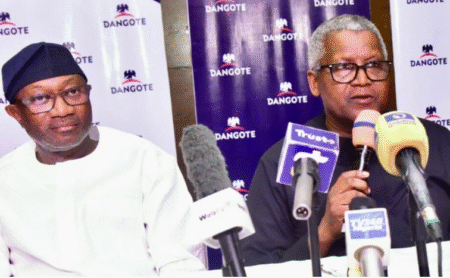Nigeria’s 2026 budget is mired in delay, sparking serious concern across markets and within government circles about fiscal instability, weak planning, and chaotic spending, The Guardian reports.
With less than two months to the start of the new fiscal year, the Federal Executive Council (FEC) has yet to approve the Medium-Term Expenditure Framework (MTEF) and Fiscal Strategy Paper (FSP), crucial documents that guide budget planning. Compounding the delay, the Senate’s Committee on Finance is demanding a full performance report on the 2024 budget, as well as projected capital spending for 2025 — before it considers next year’s fiscal proposals.
Senator Mohammed Sani Musa, chair of the finance committee, insists the government must provide these reports by Oct 23 before any MTEF/FSP for 2026–2028 is approved. Critics argue the government hasn’t reworked key assumptions underpinning the MTEF — notably oil price benchmarks and production targets — even as reality diverges from projections.
These delays undermine the Fiscal Responsibility Act, which requires timely approval of MTEF/FSP documents. According to insiders, without these frameworks, the budget process risks becoming “hasty and ad-hoc,” raising market risk and eroding confidence.
Meanwhile, ministries and agencies are reportedly suffering from underfunding. Some key human-capital programmes have been stalled for years, while others lack even basic resources, officials say. There’s also growing concern that regular reporting on budget implementation has been suspended — a blow to transparency.
The spectre of unrealistic assumptions looms large. The current MTEF is based on an oil price benchmark of US$75 per barrel and production of 2 million barrels per day. But for months, actual prices have hovered below US$70, and many question whether production targets are realistic in the near term.
Analysts warn that if the government rushes through budget approval without accountability or realistic assumptions, Nigeria risks repeating past cycles of fiscal chaos, under-delivered projects, and declining investor confidence.









